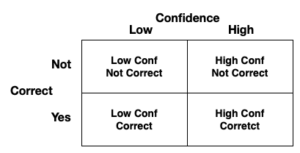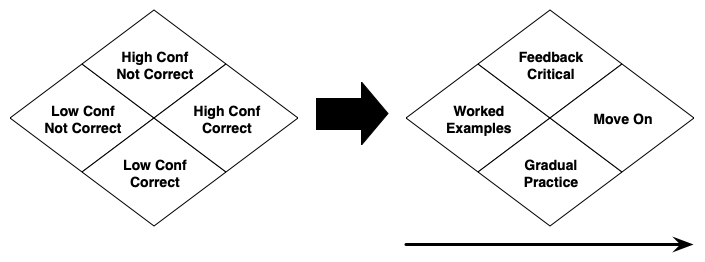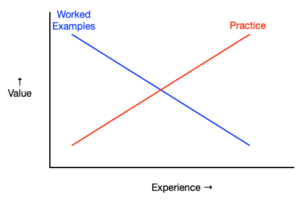 It’s become obvious (even to me) that there are a host of teachers moving to L&D. There are also a number of initiatives to support them. Naturally, I wondered what I could do to assist. With my reputation as a cynic apparently well-secured, I’m choosing to call out some bad behaviors. So here are some superstitions for new practitioners to watch out for!
It’s become obvious (even to me) that there are a host of teachers moving to L&D. There are also a number of initiatives to support them. Naturally, I wondered what I could do to assist. With my reputation as a cynic apparently well-secured, I’m choosing to call out some bad behaviors. So here are some superstitions for new practitioners to watch out for!
As background, these aren’t the myths that I discuss in my book on the topic. That would be too obvious. Instead, I’m drawing on the superstitions from the same tome, that is things that people practice without necessarily being aware, let alone espousing them. No, these manifest through behaviors and expectations rather than explicit exhortation.
- Giving people information will lead them to change. While we know this isn’t true, it still seems to be prevalent. I’ve argued before about why I think this exists, but what matters is what it leads to. That is, information dump and knowledge-test courses. What instead we need is not just a rationale, but also practice and then ongoing support for the change.
- If it looks like school, it’s learning. We’ve all been to school, and thus we all know what learning looks like, right? Except many school practices are only useful for passing tests, not for actually solving real problems and meeting real goals. (Only two things wrong: the curriculum and the pedagogy, otherwise school’s fine.) It, however, creates barriers when you’re trying to create learning that actually works. Have people look at the things they learned outside of school (sports, hobbies, crafts, etc) for clues.
- People’s opinion is a useful metric for success. Too often, we just ask ‘did you like it’. Or, perhaps, a ‘do you think it was valuable’. While the latter is better than the former, it’s still not good enough. The correlation between people’s evaluation of the learning and the actual impact is essentially zero. At least for novices. You need more rigorous criteria, and then test to achieve.
- A request for a course is a sufficient rationale to make one. A frequent occurrence is a business unit asking for a course. There’s a performance problem (or just the perception of one), and therefore a course is the answer. The only problem is that there can be many reasons for a performance problem that have nothing to do with knowledge or skill gaps. You should determine what the performance gap is (to the level you’ll know when it’s fixed), and the cause. Only when the cause is a skill gap does a course really make sense.
- A course is always the best answer. See above; there are lots of reasons why performance may not be up to scratch: lack of resources, wrong incentives, bad messaging, the list goes on. As Harless famously said, “Inside every fat course there‘s a thin job aid crying to get out.” Many times we can put knowledge in the world, which makes sense because it’s actually hard to get information and skills reliably in the head.
- You can develop meaningful learning in a couple of weeks. The rise of rapid elearning tools and a lack of understanding of learning has led to the situation where someone will be handed a stack of PPTs and PDFs and a rapid authoring tool and expected to turn out a course. Which goes back to the first two problems. While it might take that long to get just a first version, you’re not done. Because…
- You don’t need to test and tune. There’s this naive expectation in the industry that if you build it, it is good. Yet the variability of people, the uncertainty of the approach, and more, suggest that courses should be trialed, evaluated, and revised until actually achieving the necessary change. Beware the ‘build and release’ approach to learning design, and err on the side of iterative and agile.
This isn’t a definitive list, but hopefully it’ll help address some of the worst practices in the industry. If you’re wary of these superstitions for new practitioners, you’ll likely have a more successful career. Fingers crossed and good luck!
There’s some overlap here with messages to CXOs 1 and 2, but a different target here.






